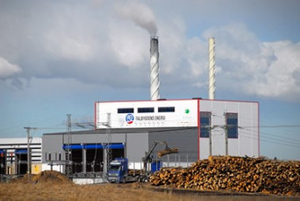Twinwoods Heat & Power CHP

| Error: no local variable "site" has been set. Error: no local variable "status" has been set. | |
 See Biomass EfW → page for a larger UK Wide map. | |
| Operator | Error: no local variable "operator" has been set. |
| Capacity | Error: no local variable "capacity" has been set. MWe |
| Feedstock | Error: no local variable "mainfeed" has been set. |
| EPR (Waste Licence) | Error: no local variable "epr" has been set. |
| ROC | Error: no local variable "roc" has been set. |
| CfD | Error: no local variable "cfdcap" has been set. |
| CHP | Error: no local variable "chp" has been set. |
Operators Annual Report
Input Data
| Year | Wood | Litter | RDF | Other | Total |
|---|
Output Data
| Year | IBA | IBA %ge of Tot IN | APC | APC %ge of Tot IN |
|---|
Summary
A Biomass Waste EFW facility based on 40,000 tonnes per annum of Wood Waste generating 3.4MWe to the grid[1]. The permitted capacity of the plant is 32,500 tonnes per annum and the permit was extended in 2018 to enable it to receive hazardous Wood Waste.
The Twinwoods site was developed by Twinwoods Heat and Power Ltd (a company established to develop the project on from the original developer B&W Waste Management) and was originally a joint venture between Bioflame and Growing Beds. After raising capital from Star Capital is was completed in 2015 after originally starting in 2009[2]. It is located in Twinwoods Industrial Park in Bedfordshire.
Plant
The project was originally based on equipment supply and delivery by Bioflame, but after going into administration in 2011 it was taken up by Saxlund International who changed the arrangements, using their combustion grate technology[3] similar to the Falbygden Biomass plant in Sweden. The plant is WID complaint.
Tonnage Input/Fuel
The tonnage received by the plant in the most recent Annual Sustainability Report for 2018-19[4] was reported by Ofgem as follows:
| Biomass | Tonnage (2018-19) |
|---|---|
| Wood Waste | 19,519 |
| Other | 0 |
| Total | 19,519 |
The plant utilizes hazardous Wood Waste from the rail network and other commercial and industrial sources. The Wood Waste tonnage received cannot be directly compared with the stated historical tonnage received and recorded in the EA statistics as these are recorded on a calendar year basis (i.e. January 2018 to December 2018) and was 24,178 tonnes.
